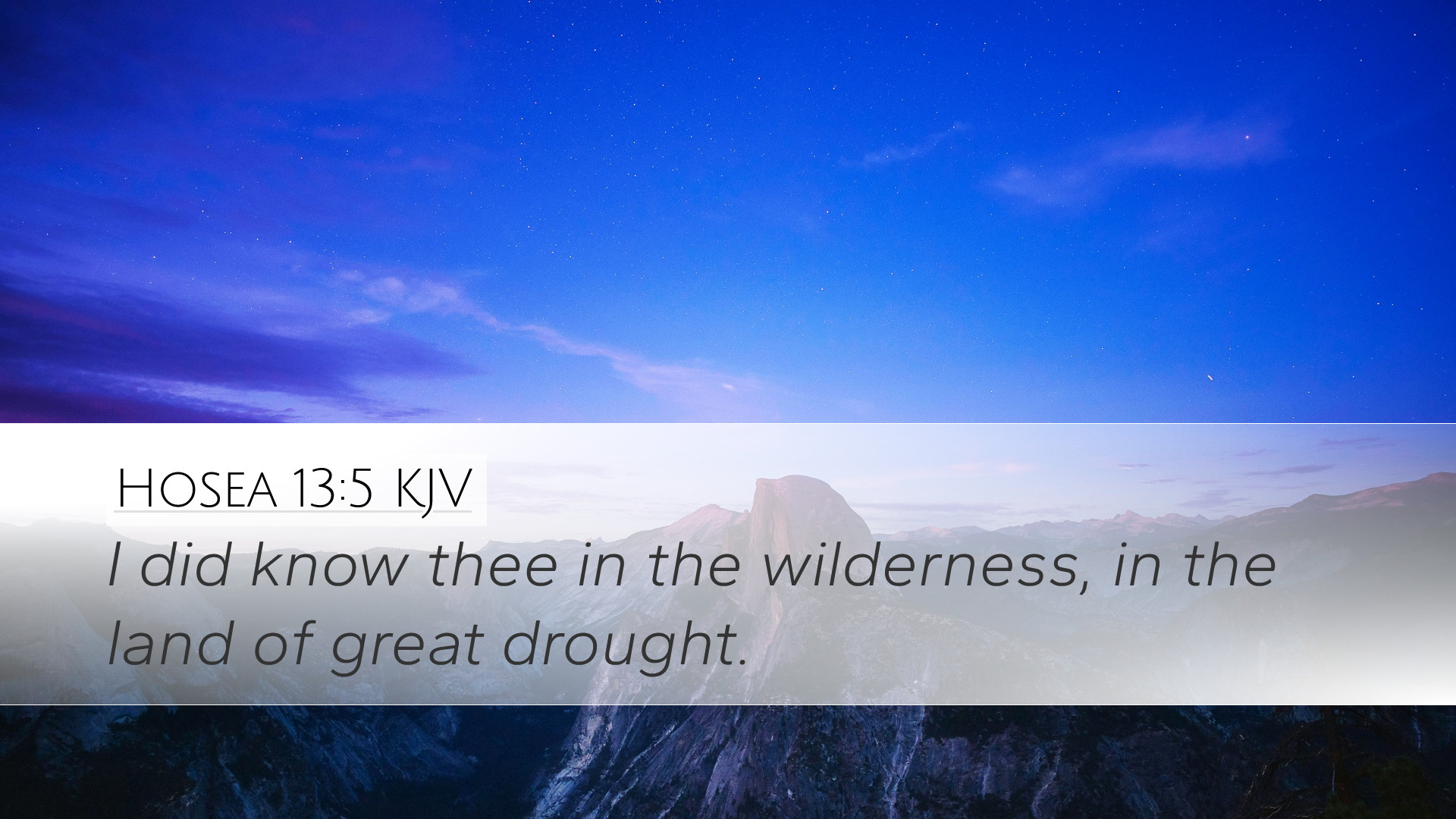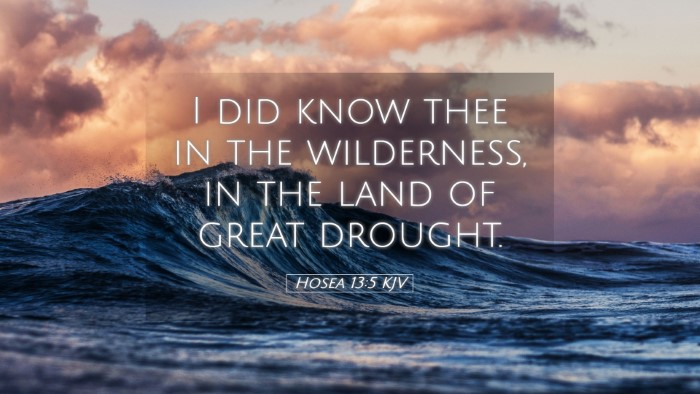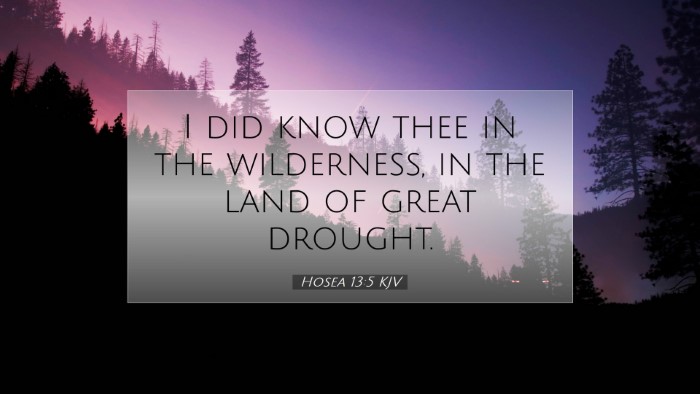Old Testament
Genesis Exodus Leviticus Numbers Deuteronomy Joshua Judges Ruth 1 Samuel 2 Samuel 1 Kings 2 Kings 1 Chronicles 2 Chronicles Ezra Nehemiah Esther Job Psalms Proverbs Ecclesiastes Song of Solomon Isaiah Jeremiah Lamentations Ezekiel Daniel Hosea Joel Amos Obadiah Jonah Micah Nahum Habakkuk Zephaniah Haggai Zechariah MalachiHosea 13:5
Hosea 13:5 KJV
I did know thee in the wilderness, in the land of great drought.
Hosea 13:5 Bible Commentary
Commentary on Hosea 13:5
Verse: "I knew thee in the wilderness, in the land of great drought." - Hosea 13:5
This verse encapsulates both a historical reference and a theological reflection on Israel's relationship with God. The context of Hosea's prophecy is crucial for understanding its depth, as it speaks significantly into Israel’s covenantal obligations and their failures, presenting profound insights for contemporary believers.
Contextual Background
The Book of Hosea, originating in the 8th century BCE, is often regarded as a poignant narrative of God's unfailing love for Israel despite their persistent unfaithfulness. The nation had turned away from God, indulging in idolatry and moral decay, thus inciting divine anger yet simultaneously eliciting divine longing for repentance and restoration.
Exegesis of Hosea 13:5
In this verse, God recalls a time when He showed special love and provision to His people during their affliction in the wilderness. The wilderness metaphor alludes to the period of the Exodus, where Israel experienced both the harsh realities of life and the miraculous provision of God.
- Historical Significance: The wilderness represents a place of testing, dependency, and divine care. As noted by Matthew Henry, this reflects God's merciful interventions during Israel's formative years.
- Theological Insight: Albert Barnes emphasizes the notion of God’s knowledge here—He knew Israel profoundly, with intimate awareness of their struggles and needs—mirroring the depth of the covenantal relationship.
- Literary Device: Use of the past tense "I knew" indicates a remembrance that calls Israel to reflect on their origins and the contrasts with their current state, as highlighted by Adam Clarke.
The Wilderness Experience
The wilderness is symbolic of spiritual barrenness but also of divine intimacy and intervention. God’s revelation of Himself to Israel in this barren setting speaks volumes. It underscores the concept that even in desolation, one can encounter divine grace.
- Dependence on God: The wilderness was a sovereign design by God to cultivate a reliance on Him alone, stripping Israel of their self-sufficiency and fostering true worship.
- God’s Faithfulness: Hosea’s mention of drought serves as a reminder that despite Israel's unfaithfulness, God remained committed to His promises, providing sustenance in both literal and spiritual droughts.
Lessons for Today
Hosea 13:5 resonates profoundly in contemporary theological discourse, illuminating several pertinent lessons for pastors, students, and scholars:
- The Nature of God’s Knowledge: The intimate knowledge that God possesses over His people reminds believers that they are always seen and known, instilling a sense of both accountability and comfort.
- The Call to Remember: Just as Israel was compelled to remember their past encounters with God, believers today are encouraged to reflect on their spiritual journeys and recognize divine interventions in seasons of struggle.
- Reliance in Drought: The metaphor of drought encourages believers to seek God earnestly in times of spiritual dryness or societal moral decline, reaffirming the truth that God's provision is often manifested amidst our deepest needs.
Conclusion
The rich tapestry of Hosea 13:5 weaves historical recollection with enduring theological truths. As pastors and theologians ponder this profound scripture, they are reminded of God's relentless love and call to covenant faithfulness. This verse invites all to return to the faithfulness of God and to reflect on how deep intimacy with Him can transform even the direst of circumstances.


